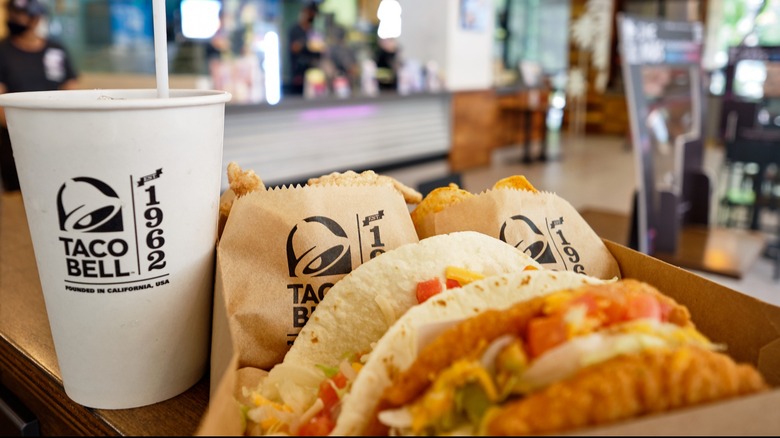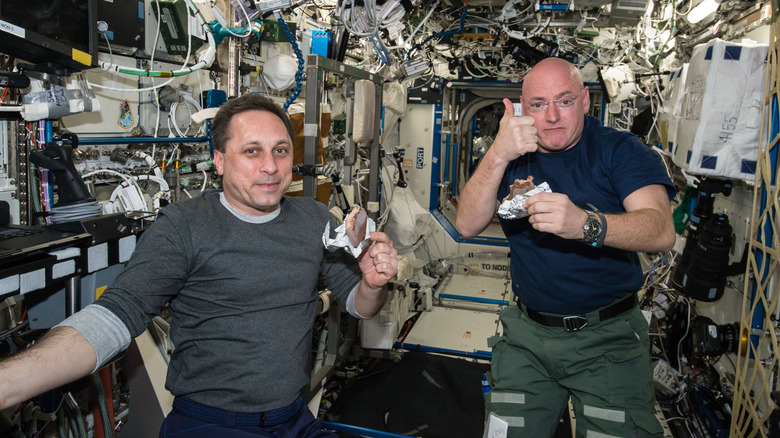How Taco Bell Tortillas Made An Impact On Space Food
When you think of critical things like feeding America's astronauts as they orbit hundreds of miles above the Earth, you probably don't think of fast food — but maybe you should! You may be surprised to learn the role that Taco Bell played in developing a crucial piece of the space diet — the shelf-stable tortilla.
NASA attempted to develop its own long-lasting tortillas that could remain fresh for long missions after a Mexican scientist requested them for a flight in the 1980s. Unfortunately, after months in space, they turned bitter and unpleasant, sending government food scientists back to the drawing board.
That's where the experience of one of the world's biggest taco chains came in. Taco Bell developed its own variety of shelf-stable tortillas in the 1990s, which NASA discovered could last up to a year without developing unpleasant flavors. That makes them ideal for even the longest missions, and they've become the go-to tortilla for the space program ever since.
A more important food than many expect
If you're wondering why so much attention is given to tortillas instead of just packing traditional bread, there's an excellent reason. Regular bread creates a significant problem in zero gravity that isn't a factor on Earth. Instead of harmlessly falling to your plate or the ground, crumbs can float through the air, potentially damaging equipment. Tortillas don't break up the same way, making errant pieces easy to scoop out of the air.
Their fast food origins land these space tortillas squarely among the weirdest food astronauts eat. Nevertheless, they're certainly more familiar to the average diner than liquid salt and pepper, prepackaged "wetpacks," and recycled water from fellow crewmembers' waste.
With the many changes to the space program in recent years, it's unclear whether these famous tortillas are still the go-to for hungry astronauts. However, compared to other fast food companies, Taco Bell has had a scientific impact that's truly out of this world.

